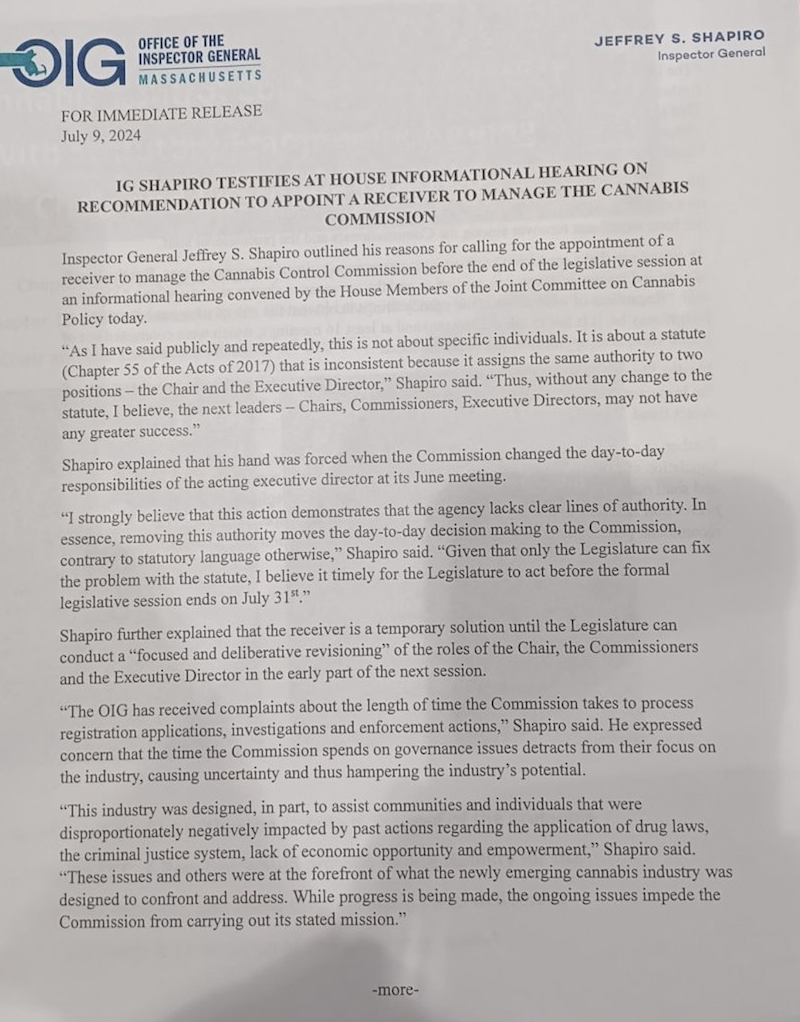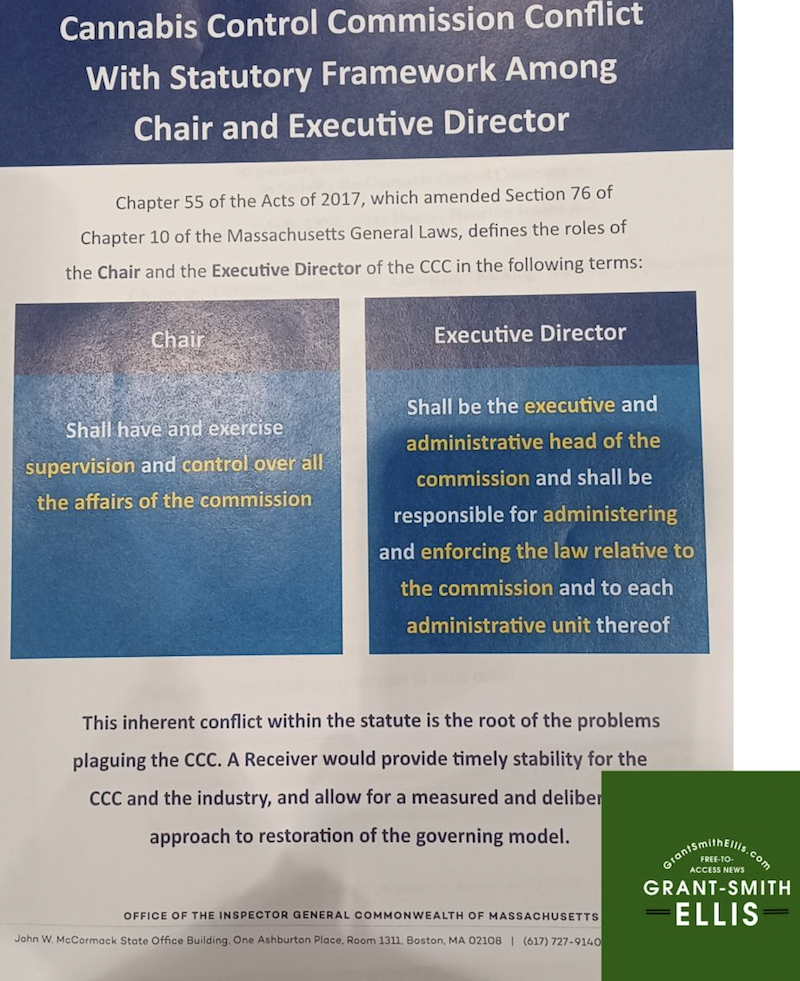Here’s the press release
TORONTO – RIV Capital Inc. (“RIV Capital” or the “Company”) (CSE: RIV) (OTC: CNPOF), an acquisition and investment firm focused on building a leading multistate platform with the strongest portfolio of cannabis brands in key strategic markets across the United States, today announced that it has entered into a settlement agreement that has resulted in JW Asset Management, LLC (“JWAM”) consenting to the dismissal of its application related to the Company’s acquisition of Etain, LLC and Etain IP, LLC.
Under the terms of the settlement agreement, RIV Capital has repurchased for cancellation all RIV Capital Class A common shares currently owned or controlled by JWAM and its affiliates (the “JWAM Shares”), amounting to 33,733,334 shares, for an aggregate purchase price of U.S.$19,625,000. RIV Capital has also reimbursed certain legal expenses incurred by JWAM as part of its application and related matters in the amount of U.S.$375,000. RIV Capital funded such amounts with cash on hand. As part of the settlement, JWAM and its affiliated funds have also withdrawn their requisition for a special meeting of the Company’s shareholders currently scheduled for June 6, 2023, which meeting will be cancelled by the Company.
JWAM filed the application against the Company in May 2022, soon after RIV Capital acquired ownership and control of Etain, LLC and Etain IP, LLC, owners and operators of legally licensed cannabis cultivation and retail dispensaries in the state of New York. In the application, JWAM sought a remedy requiring the JWAM Shares to be repurchased by the Company at a price of C$1.65 per share.
“I am glad to have reached a mutually beneficial agreement that enables both parties to move forward in a positive manner,” said Mark Sims, Director, President, and Chief Executive Officer of RIV Capital. “In our view, our share price simply does not reflect the intrinsic value of our unique assets – industry-leading liquidity, reputable strategic partner, and vertical license in New York. Our Board of Directors, on the recommendation of the Conflicts Review Committee, which is comprised solely of independent directors, determined that this settlement is in the best interest of the Company, as it mitigates the risks associated with the application and the remedies sought by JWAM. Now that these claims have been resolved, we can focus on continuing to operationalize New York, in addition to exploring a range of opportunities inside and outside of New York as we seek to build our platform going forward.”
Hawthorne/JWAM Settlement
The Company also announced today that The Hawthorne Collective, Inc. (“The Hawthorne Collective”) has advised the Company that the litigation between The Hawthorne Collective, JWAM, Jason Wild and certain related parties of JWAM has been settled. The Hawthorne Collective has advised the Company that under the settlement, in return for a withdrawal of the existing litigation and other consideration, Jason Wild and JWAM have agreed, among other things, not to take any action that would interfere with The Hawthorne Collective’s agreements with the Company, or any rights set forth in those agreements.
Securities Law Matters
The repurchase of the JWAM Shares from funds managed by JWAM and resident in the United States is considered to be a “related party” transaction under Multilateral Instrument 61-101 – Protection of Minority Security Holders in Special Transactions (“MI 61-101”), as JWAM beneficially owns and controls (indirectly through its funds) 33,733,334 of the issued and outstanding shares, representing approximately 19.77% of all issued and outstanding shares.
The Company is exempt from the formal valuation requirements of MI 61-101 pursuant to section 5.5(b) of MI 61-101 – Issuer Not Listed on Specified Markets, and from the minority approval requirements of MI 61-101 pursuant to section 5.7(c) – Other Transactions Exempt from Formal Valuation as The Hawthorne Collective, a control person of the Company pursuant to MI 61-101, and a party that is at arm’s length to JWAM and not an interested party in the repurchase, has advised the Company in writing that it supports the repurchase of the JWAM shares pursuant to the settlement agreement.
The closing of the repurchase occurred less than 21 days following the filing of the material change report related to the transaction. The Company believes that this shorter period is reasonable and necessary, as the immediate repurchase was a prerequisite to resolution of the JWAM matter prior to the issuance of a decision on the application.
https://www.rivcapital.com/newsroom/company-news/news-details/2023/02/23/riv-capital-settles-application-initiated-by-jw-asset-management?mc_cid=617d2ceda1
MJ Biz give you the background
A legal dispute pitting a Scotts Miracle-Gro subsidiary against an investment fund controlled by the executive chair of cannabis multistate operator TerrAscend has been settled, with the MSO-connected investment fund in effect agreeing to be bought out of a deal involving the purchase of a New York medical marijuana company.
RIV Capital, a Toronto-based investment firm bankrolled in part by the Hawthorne Collective, a cannabis-focused subsidiary of Scotts, announced the settlement in a news release Thursday.
Scotts has funded legalization efforts in the Northeast and is trying to enter the retail cannabis market in that part of the country.
Last March, RIV Capital announced it had struck a deal to purchase Etain Health for $247 million.
Etain is one of the 10 vertically integrated medical marijuana companies allowed in New York state under current law.
The company has locations in midtown Manhattan as well as upstate.
RIV used $150 million from Ohio-based Hawthorne to close the Etain deal.
https://mjbizdaily.com/scotts-hawthorne-settle-marijuana-dispute-with-terrascend-jw-asset-management/?utm_medium=email&utm_source=newsletter&utm_campaign=MJD_20230227_NEWS_Daily


 Cannabis News1 year ago
Cannabis News1 year ago
 One-Hit Wonders1 year ago
One-Hit Wonders1 year ago
 Cannabis 1011 year ago
Cannabis 1011 year ago
 drug testing7 months ago
drug testing7 months ago
 Marijuana Business Daily1 year ago
Marijuana Business Daily1 year ago
 Education1 year ago
Education1 year ago
 Cannabis1 year ago
Cannabis1 year ago
 Education1 year ago
Education1 year ago


















